Ballotpedia published its year-end analysis of the 140 statewide ballot measures voters decided in 2022. The year-end analysis provides:
- a breakdown of approval rates by measure type
- a breakdown of measures by topic
- historical comparisons of the numbers and types of measures
- data on citizen initiative activity compared to recent election cycles
- a summary of signature petition drive costs and campaign finance data
- an analysis of amendments to state constitutions
- a summary of Ballotpedia’s ballot language readability analysis
- a summary of bond and tax measures in 2022
Of the 140 statewide ballot measures, 96 (68.57%) were approved and 44 (31.43%) were defeated. Thirty of the measures were citizen initiatives, 104 were referred to the ballot by state legislatures, three were advisory questions, and three were automatically referred to the ballot.
- On November 8, voters in 37 states decided on 132 statewide ballot measures. Voters approved 90 and rejected 42 ballot measures on November 8.
- On December 10, voters in one state, Louisiana, decided on three ballot measures, all of which were approved.
- Earlier in 2022, voters in four states decided on five ballot measures. Voters approved three and rejected two of these measures.
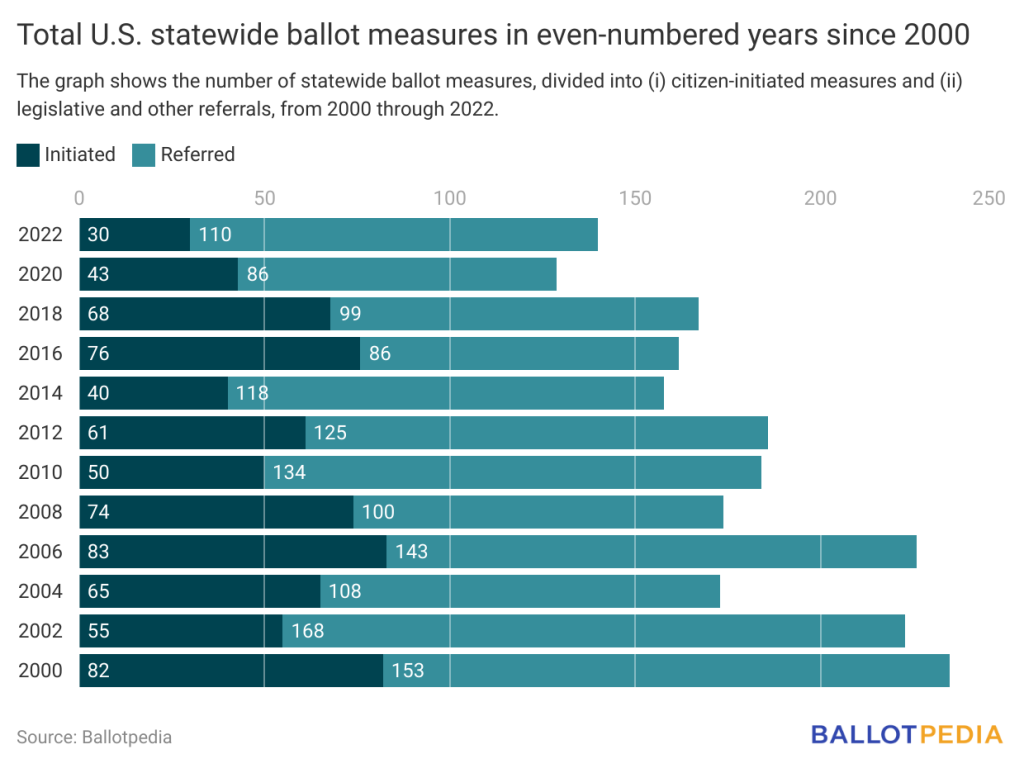
Highlights:
Lower number of citizen-initiated measures: There were 30 citizen-initiated measures in 2022, which was the lowest number compared to other even-numbered years since 2010. From 2010 to 2022, the average number of initiatives on the ballot in an even-numbered year was 53. Of all filed initiatives targeting the 2022 ballot, 3.52% qualified for and appeared on the ballot. The number of citizen-initiated measures that qualified for the ballot decreased 61% from 2016 to 2022, with 76 in 2016 and 30 in 2022.
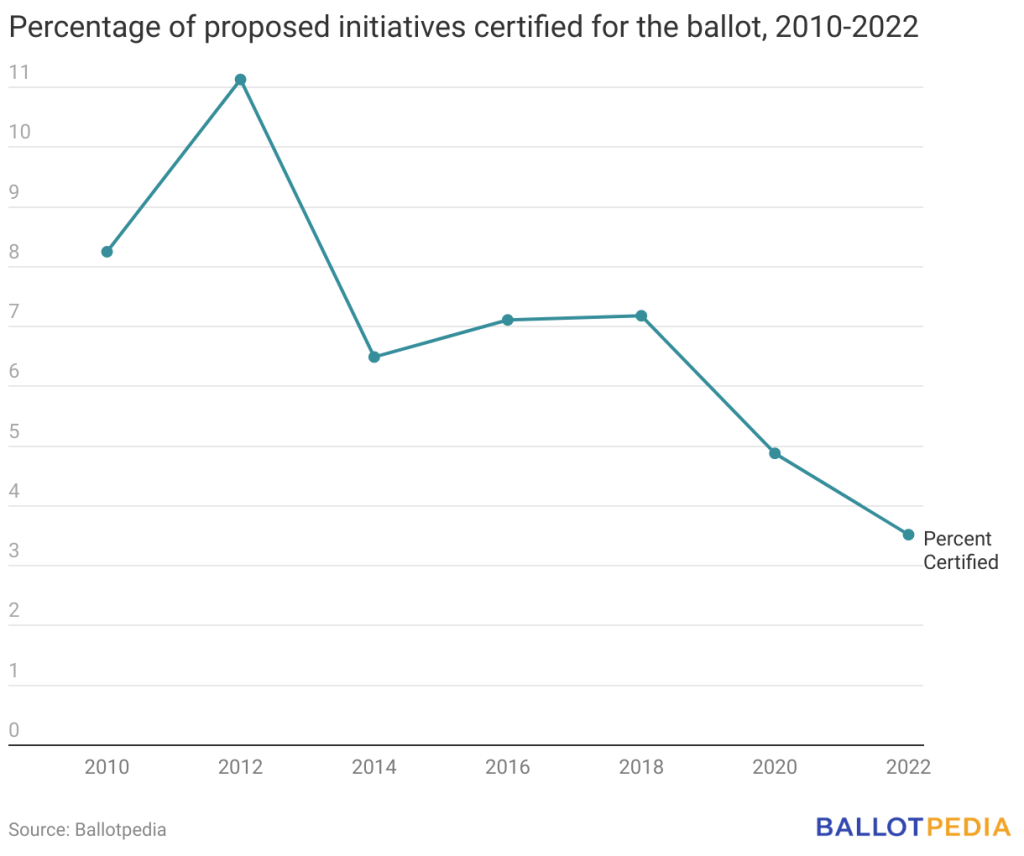
Higher initiative signature costs: Campaigns for citizen-initiated measures spent a combined $118.29 million on signature gathering. The average total petition drive cost for 2022 was $4.08 million, an increase from previous years. In 2020, the average total petition cost was $2.06 million. In 2018, the average cost was $1.13 million. In 2016, the average cost was $1.03 million. From 2016 to 2022, the average cost of a petition drive increased 297%.
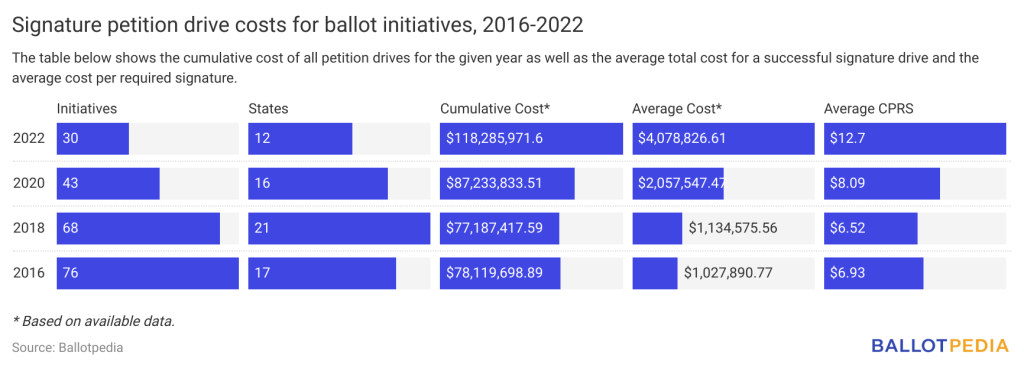
Campaigns received more than $1 billion: Of the 140 measures, 63 measures featured campaign finance. Ballotpedia identified $1.06 billion in contributions to support or oppose statewide measures on ballots in 2022. California accounted for $713.48 million (67%) of ballot measure campaign contributions.
- Of the 30 initiated measures, all featured campaign finance. The position that raised more funds won 24 of 30 (80%) elections. The position that raised less or no funds won 6 of 30 (20%) elections.
- In 2022, the ballot initiative that saw the most contributions for and against was California Proposition 27 at $418.5 million. A total of 10.2 million people voted on Proposition 27, leading to a cost-per-vote (CPV) of around $41.02. Supporters raised $169.3 million, and their position (‘yes’) received 1,794,689 votes, for a CPV of $94.36 per vote. Opponents raised $249.2 million, and their position (‘no’) received 8,407,777 votes, for a CPV of $29.64.
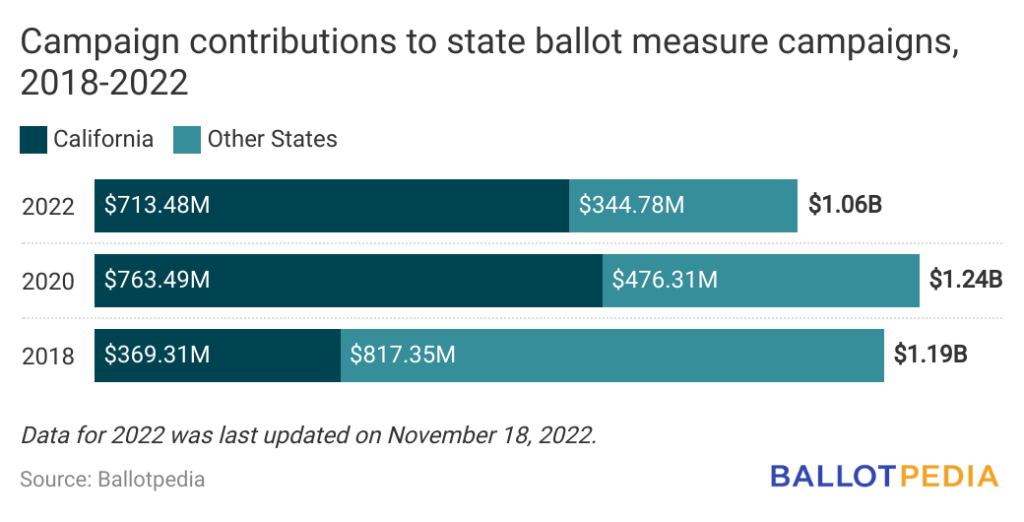
Changes to state constitutions: Voters in 28 states decided on 99 constitutional amendments in 2022. Voters approved 70 (70.71%) and rejected 29 (29.29%). Of the constitutional amendments, 88 were referred to the ballot by state legislatures, and 11 were put on the ballot through citizen initiative petitions.
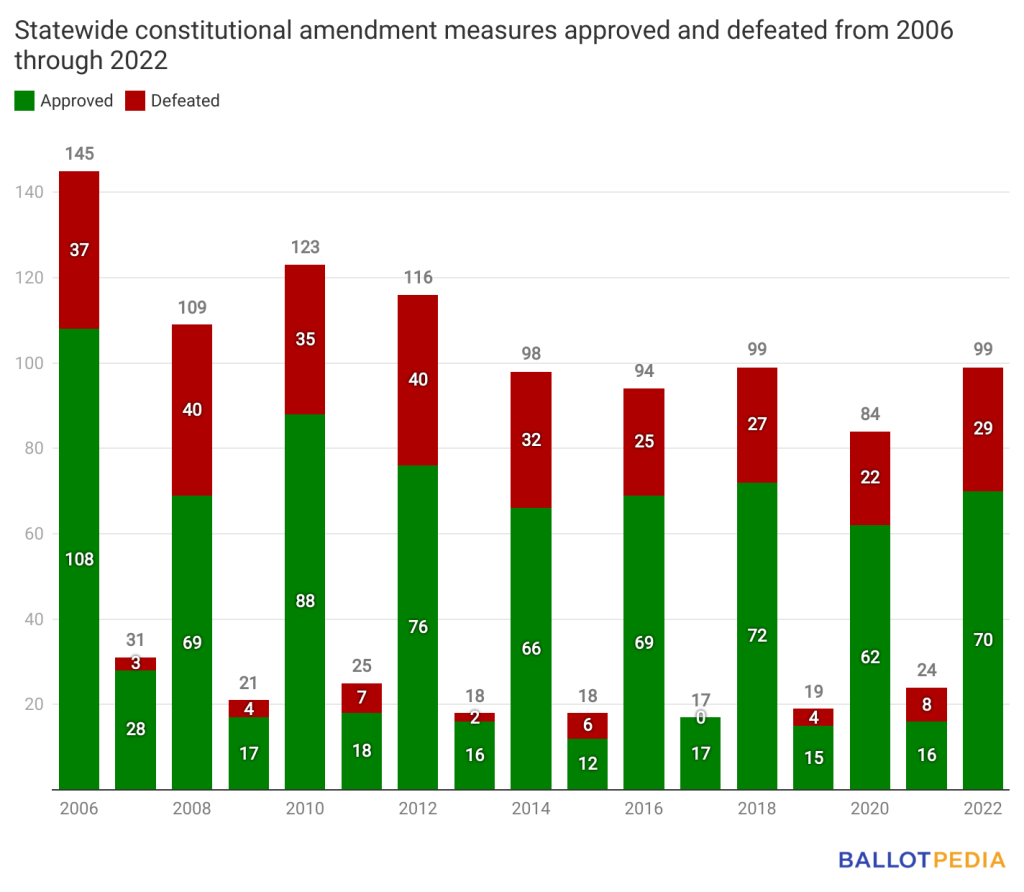
Graduate-school reading level for ballot questions: In 2022, the average Flesch-Kincaid Grade Level, a readability metric that analyzes words and sentences, for the ballot titles or questions of all 140 statewide 2022 ballot measures was 19 (third-year graduate school reading level). The average ballot title grade for all measures in a single state averaged together ranged from 7 in Iowa to 44 in Kentucky. Citizen-initiated measures received an average title grade of 17 years of education, and referred measures received an average title grade of 20 years.
Voters decided nearly $5 billion in bond measures: Eight bond issues were on the ballot in four states in 2022. One bond measure in Alabama (totaling $85 million), three bond measures in Rhode Island (totaling $400 million), three bond measures in New Mexico (totaling $260 million), and one bond measure in New York (totaling $4.20 billion). All ballot measures were approved, totaling $4.94 billion in new bonds.


